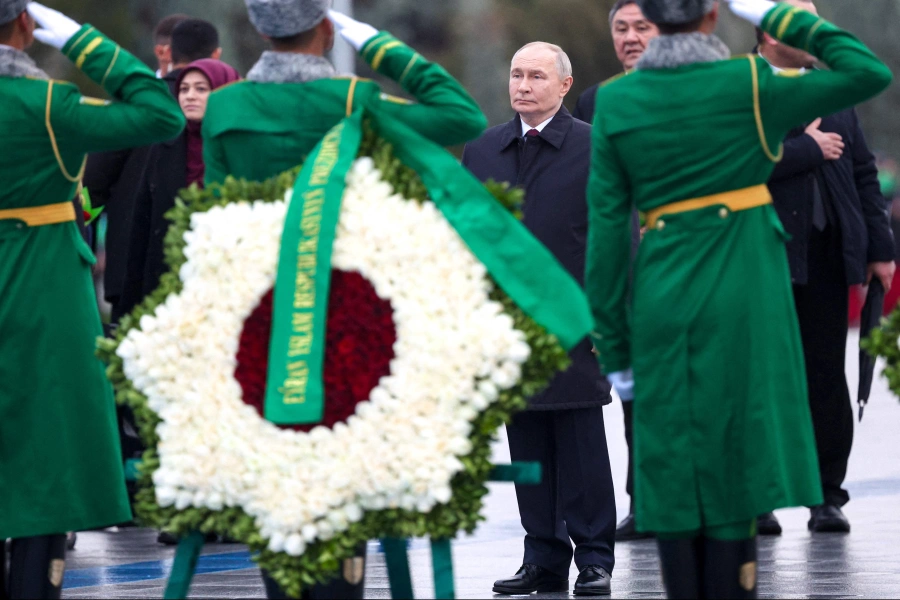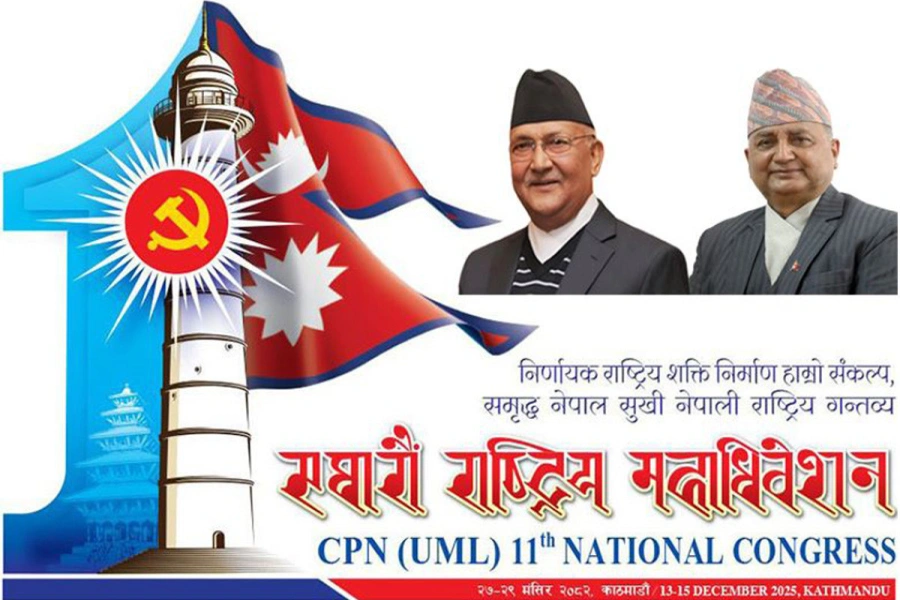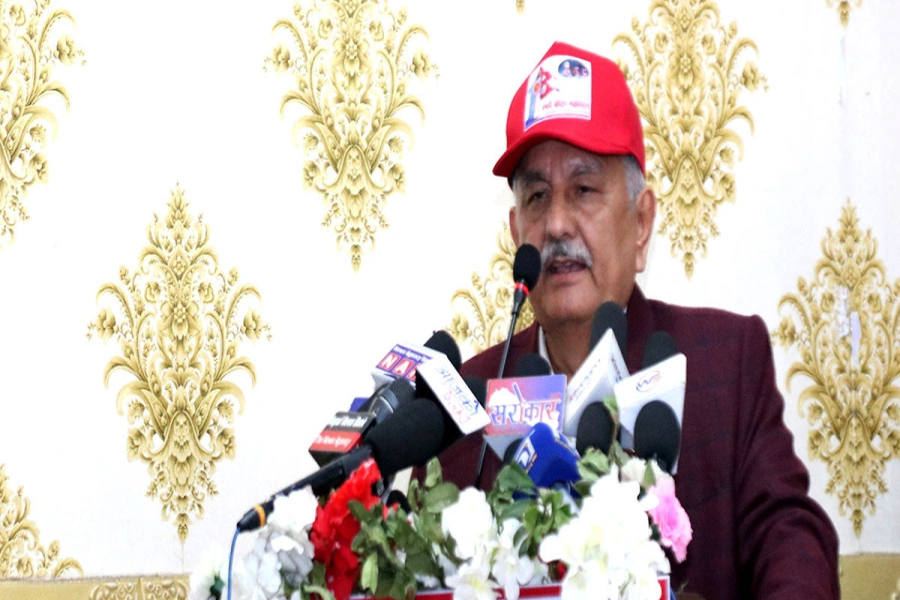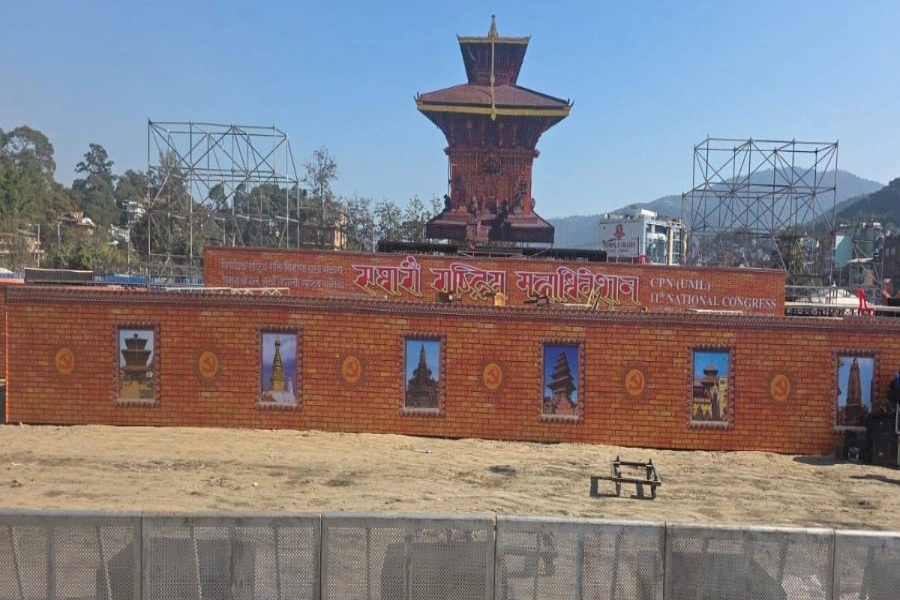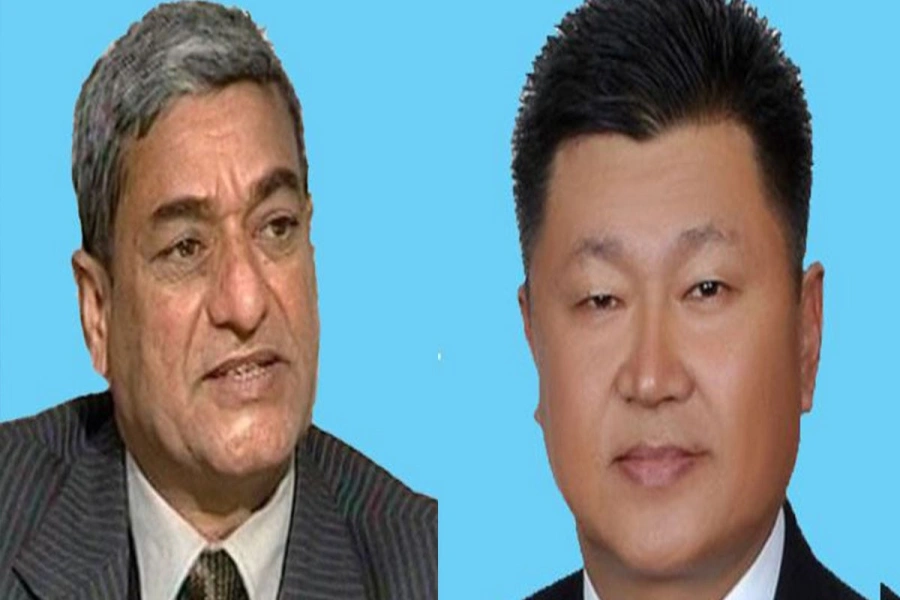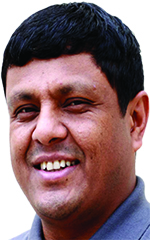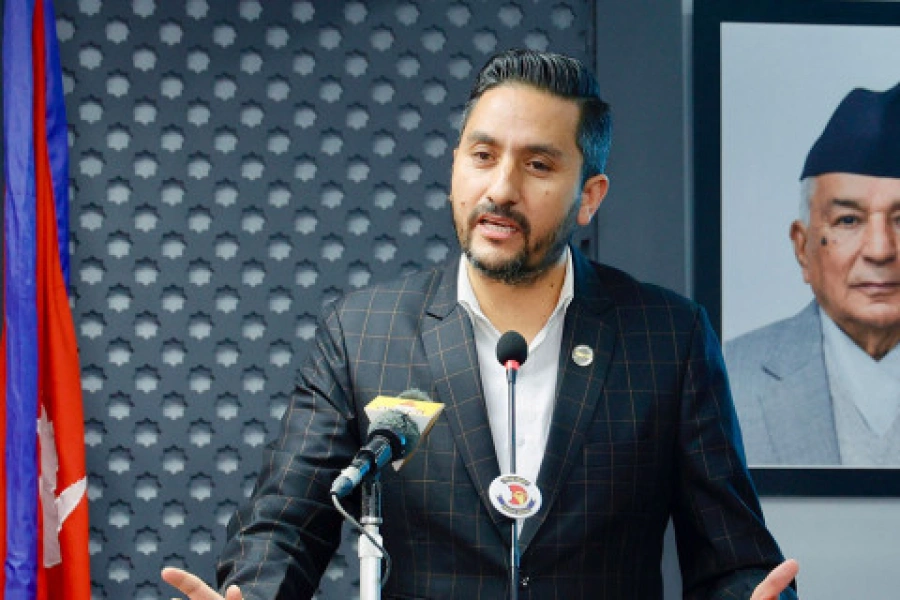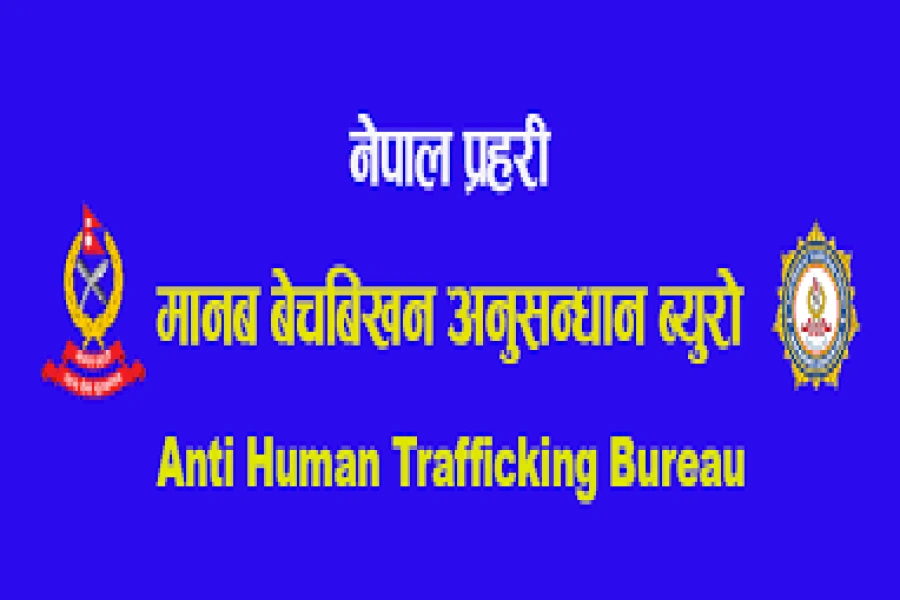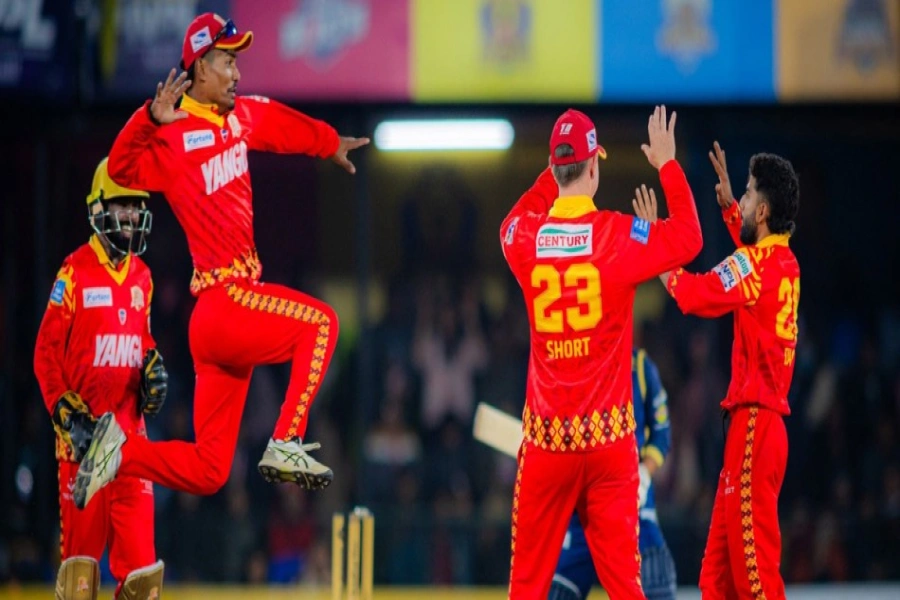Being the only Hindu state, Nepal enjoyed the love of all Hindus across the world. There was no religious confrontation. Outer respect, love and gratitude were high. Now the outer respect has faded and internal confrontation is rife.
Secularism is one of the significant achievements of Nepal's federal and republican constitution, a modest yet visible outcome of the People's Movement in 2062/2063 BS. However, recent political events and updates have raised concerns about the future of this crucial issue, potentially leading to a fresh debate.
Rajendra Lingden, an active supporter of Hinduism, holds the position of chair within RPP and possesses the power to manipulate political equations both now and in the future. Members of this party have raised concerns in parliament about this agenda, and they seem determined to bring this issue to the forefront at any cost. Dr. Baburam Bhattarai has consistently switched parties, questioning the transformation of existing parties and policies. He has expressed his opinion on the possibility of reinstating Nepal as a Hindu nation. Although the majority of people do not object to a return to non-secularism, some are eagerly anticipating its arrival, while others are adamantly opposed. The question naturally arises: will Nepal return to Hinduism? A series of unending arguments and counter-arguments have been put forth, and the global community presents a cross-cutting reality on this very issue.
Cross-cutting realities
Fashion events in Asia

Around 80 countries in the world have adopted secularism, while an almost equal number maintain an active religious identity. About two dozen nations have yet to align themselves with either position. Iraq, Iran, Afghanistan, and Madagascar were once secular, but are now religious. In the United States, a Christian Protestant is a prerequisite for holding the office of the presidency, while the head of state in the United Kingdom is the patron of Catholics. Australia identifies itself as a Christian nation, and many countries follow Islam. Thus, religion often serves as an identity for individuals and nations. Any emotional or inebriated shuffling of his delicate balance could lead to unfettered pandemonium and bedlam, damaging the very fabric of society.
Many European nations lacked structured human settlements for a long time, and their societies were composed solely of nomads, resulting in a natural transience. However, our civilization boasts a structured settlement history of over five thousand years. Therefore, it is not surprising that such a society would develop a permanent religion, profession, language, and many other societal characteristics.
The principle of secularism is believed to diminish religious fundamentalism and promote camaraderie among various groups. However, Ingular Harts's research on secularization in America concludes that secularism has the opposite effect, making people more deeply religious. In a secular society, debates and competitive feelings arise among different religious groups. This psychology of strengthening one's own religion by comparing it to others ignites competition. People feel inclined to celebrate more extravagant Christmas than Dashain or more posh and ritzy Idul-Fitar than Buddha Jayanti. Debates such as "Why only Hindus in Pashupati?" and "Why not mummy nearby Aaryghat?" emerge and excite people. People become overly conscious of their religious identity and suspicious of others instead of being cooperative. Fundamentalism and fanaticism can prevail in the name of preserving religion.
If not debated strongly, religious fervor will eventually fade from society following a series of modernization. Currently, people are not inherently fundamental in Hinduism. It was simply a luxurious identity. In Kathmandu, Rastriya Prajatantra Party, the staunch advocate of Hindu religion, received the highest number of votes in a past election, despite people in the city showing more enthusiasm for celebrating Christmas and the English New Year than for Dashain and Tihar. Once a society has been forcefully secularized, people become alarmed. Feeling at risk, more people become interested in preserving and promoting their own religion. If politics had not initiated any secularization move, religious inclinations would have resurfaced naturally in a few years; but now, the cementing of religious identities is becoming more pronounced.
More Cemented
Industries seeking endless confrontation in Nepal intentionally brought forth the issue of secularism. With the reintroduction of democracy in 2046, confrontations and altercations on political differences were high. Party differences were even counted during weddings, funerals, and social gatherings. However, now people regard political differences as a normal occurrence. Cacophonies and fracases on these issues are not as common, and the differences in political opinions are not at a position to disrupt the social harmony among people. In order to breed chaos and confrontation, secularism has been used as a tool to divide people into various groups intentionally.
Cultural transformations are not easy to achieve, and simply making laws won’t guarantee it. Forceful changes are not possible and do not take place. Even the leadership is accused of having monetary gains in this issue. It is said that secularism was not even an issue during the demonstrations, and a large number of people advised to set Nepal as a Hindu state during the collection of suggestions on the preliminary draft of the constitution.
Religion is not a measure of success and no religion is prioritized by the nation. Sanskrit was preserved not because it was the language of Aryas, but because many valuable books on oriental philosophies are documented in it. The Pali language, which many Buddhist discourses are documented in, is also being equally preserved. Germany reportedly has the maximum number of Sanskrit universities in the world. The ancient philosopher Kautilya's Economics was written in Sanskrit. Most books on classical occidental philosophies are written in Hebrew, Latin, and Greek, and western governments have actively protected those languages. The nation's investments in certain languages are based on their rationality rather than their religious affiliation. However, we often misjudge and wrongly interpret these facts.
Being the only Hindu state, Nepal enjoyed the love of all Hindus across the world. There was no religious confrontation. Outer respect, love and gratitude were high. Now the outer respect has faded and internal confrontation is rife. Parties willing to emasculate Nepal have received more than of wish from a single agenda of secularism. In the past, there was no sign of religious fundamentalism or any discrepancies being exercised. However, an excessive amount of alertness can sometimes breed doubts. Secularism has been a similar situation.
In politics, popular choices and rational choices are not always the same. Not every decision holds the same level of maturity and importance. Some agendas that were once regarded as popular have proven to be suicidal for political parties, such as the Maoists' proposal for ethnicity-based provinces and the Madesh-based parties' misinterpretation of the Constitution. The same may be true for religious issues in the future. Therefore, creating rifts over religion could seriously undermine the unity, fraternity, and prosperity we hope to achieve. It is time to consider whether we want to be divided for the sake of others or united for ourselves. Let's not turn it into a fashion for destruction.



